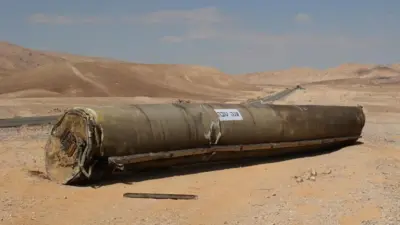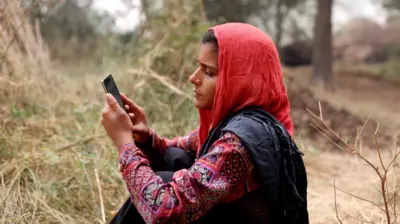We've updated our Privacy and Cookies Policy
We've made some important changes to our Privacy and Cookies Policy and we want you to know what this means for you and your data.
Harrabin's Notes: Dumplings and the dance of death
In his regular column, ΒιΆΉΤΌΕΔ environment analyst Roger Harrabin looks at the outcomes of the climate conference in Tianjin, China.
DUMPLINGS AND THE DANCE OF DEATH
Copenhagen vs Tianjin. Battle of the UN climate conferences. China won. By a salivating mouthful.
It was universally agreed that the pork dumplings Tianjin-style are way better than Danish meatballs IKEA-style.
And I mean way, way better. Tianjin's most celebrated dumplings from the restaurant near the NGOs' hotel left delegates in steaming ecstasy.
But what about the fate of the planet? you ask.
Ah, yes.
Well, if the planet needs saving with the alacrity that so many scientists insist, then better console yourself with another plate of dumplings. (Try the little vegetarian beauties - they are sumptuous).
Because the superpowers here are locked in what one veteran observer called a Dance of Death while the rest of the world looks on from the seats round the dancefloor.
I'll talk through the steps of that Dance of Death. It's predicated on a serious impasse, as anyone who's done any Latin or ballroom dancing will know. China and America can't agree which partner should lead.
From the Chinese perspective it's very clear: the USA must take the first steps. The US has failed by a mile to fulfil the demand of scientists to cut emissions 24-40% by 2020, based on 1990 levels.
The US also has the cheek to ask China to take legally binding actions which are quite at odds with current UN climate rules.
Different perspectives
To the Chinese it is blindingly obvious that America is 100% in the wrong. Never mind that America couldn't possibly make the cuts demanded because presidents Clinton and Bush Jnr did not regard the climate as a priority.
Or that the US can't commit too far until (if ever) the Senate passes energy legislation. In China's eyes the climate responsibility falls unarguably on the Western superpower.
From America's perspective the situation is also clear. It's pointless if the world's second biggest emitter, the US, is legally bound to carbon cuts whilst the biggest emitter, China, offers clean energy policies which may be meaningful but are merely voluntary.
It's also self-evident that for the US to make internationally verifiable commitments it needs to be sure that any Chinese commitments are verifiable too. That sounds reasonable doesn't it?
But imagine the loss of face for this shakily assertive developing superpower to accept a reversal of UN principles on common but differentiated responsibility in order to accommodate its richer rival. How humiliating would that be?
And imagine, if you can, the threat to China's ruling Communist party from transparent data about energy and pollution. Communist regimes don't do open data. Data is power, especially to the state-owned enterprises which use their inside knowledge to strengthen their market position.
If there's open data on energy, people might start demanding verifiable economic data on everything. Perish the thought!
Now this is where the Dance of Death gets really intriguing because despite having attended too many of these UN conferences for the sake of my health and sanity, I still can't be sure whether both of the partners in the Dance of Death realise that they are demanding the impossible of each other.
In other words, is the dance a posture in which both parties seek to appear reasonable to onlookers while secretly embracing the enduring immobile clinch?
There were large brains in Tianjin so I can't believe the US and China fail to understand the mutual exclusivity of their positions. They are both trapped by their own domestic necessities.
Treading on toes
Meanwhile the rest of the world looks on in exasperation. Because if the superpowers can't find some way to move, the world will fail to achieve the comprehensive binding climate deal that's demanded by so many, particularly by the most potentially vulnerable.
That's why the Tianjin conference has been focusing on the sort of gestures on the climate dancefloor which don't involve the big guys actually having to shift their outsize carbon feet.
One gesture can be achieved by an American smile and wink. It's the international $100bn annual fund which by 2020 would help developing nations cope with the projected consequences of climate change.
Developing countries point out that by the standards outlined by the International Energy Agency this is probably only about a tenth of the sum that will be needed globally. Tuvalu called it 30 pieces of silver.
But hey, $100bn is still almost double total current development aid. And that's why many poorer nations will reluctantly smile back at the US-supported cash offer.
The sum was first mooted by the UK's Gordon Brown and confirmed at Copenhagen by Hillary Clinton. Details of how the money will be found will be spelled out before the next big UN meeting in Cancun, Mexico in December.
If the US can nod to the cash deal and China gives a wink of acceptance, the Cancun talks will be hailed as evidence that the climate dance is back in swing following the trauma in Copenhagen.
If, on the other hand, the big guys fail to smile, or if one of the little guys - say, Venezuela or Bolivia - decides to start throwing punches, then that will be serious indeed.
Diplomats warn that the climate talks have the potential to kill the idea of multilateral UN agreements on anything, anywhere.
That's a serious warning and most of the dancers are taking it seriously. The mood in Tianjin was suitably sober. But the Cancun audience needs to see that movement for the sake of the UN as well as for those who fear risks to the climate.
I doubt whether delegates will find cactus fajitas as distractingly palatable as those steaming dumplings.
Top Stories
More to explore
Most read
Content is not available








